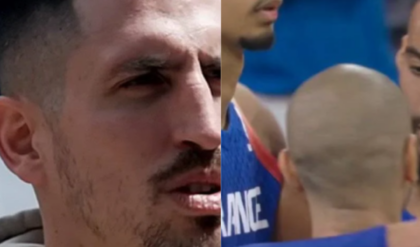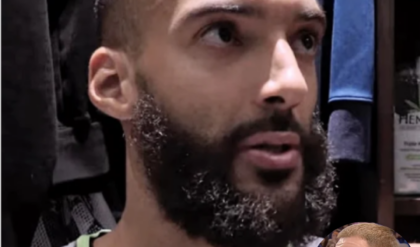Caitlin Clark is best thing to happen to WNBA. Why are some players so frosty toward her?
Caitlin Clark playing in the WNBA could lift women’s sports to incredible heights, which makes any resentment toward her just baffling.
As the most promising day in the history of the WNBA arrives, the American cultural spotlight shines brighter than it ever has on a female athlete in a team sport, and on the possibility she brings to lift basketball and all women’s sports to a place they have never been.
But the glare of that bright and sometimes harsh light hasn’t fixed on the magical Caitlin Clark alone. Over the past couple of weeks, it has focused on the players who have come before her, some of whom strangely appear to be having trouble accepting and dealing with her fame, even as they will benefit greatly from it.
As Clark was leading Iowa to its second consecutive NCAA final, this one a loss to undefeated national champion South Carolina, and delivering massive TV ratings that for the first time ever beat the men, some of the biggest names in her sport were talking about her. Of course they were. How could they not? Everyone wanted to know what they thought about this generational talent, this household name, this college record-breaker — superstars like Diana Taurasi and Breanna Stewart in particular.
The question to Stewart, a four-time NCAA champion at UConn, two-time WNBA champion and two-time Olympic gold medalist, came on SiriusXM radio before the Final Four games were played.
“Does Caitlin Clark need a championship to be considered one of the greats in women’s college basketball history?”

What a layup this was for Stewart. The question was not if Clark needed a championship to be the GOAT, the greatest of all time. No, the question was much broader and easier to answer: was Clark “one of the greats?”
There can be dozens of those, as many as you want, the more the merrier. One would certainly think the person who has scored the most points in NCAA Division I basketball history, male or female — that’s Clark — would be one of them.
Not for Stewart.
“Yeah, she does (need a championship),” Stewart said coolly, without hesitation. “I think so. Because then you’re gonna look 10 years back and you’re gonna see all the records she’s broken, and the points and stuff like that, but anybody knows your goal when you play college basketball is to win a national championship. So you need one.”
Needless to say, that created some news, and not in a good way for the 29-year-old Stewart. Her answer was downright strange, as if she didn’t want to acknowledge that this young woman, more than seven years her junior, was changing everything about how the nation looks at her sport. Stewart instead chose to keep her steely focus on her UConn roots, where she was fortunate to play on a roster full of future WNBA players to be able to win those four titles. Clark, it should be noted, played on a roster full of future non-WNBA players, other than herself, and somehow took Iowa to two consecutive NCAA finals.
Of course it’s Stewart’s right to say what she said, and brutal honesty is always notable. But I was intrigued, so, for the past week, I tried to find out what was going on. I asked Stewart’s agent, Lindsay Colas, several times if I could speak to Stewart, with no luck. Finally, at Colas’ suggestion, I texted two questions for her to send to Stewart, who Colas said was out of the country.
My questions:
1. Knowing the incredible college records and unprecedented historic impact Caitlin Clark has had on women’s basketball, do you regret your comment about her having to win a title to be “one of the greats?” It wasn’t to be the GOAT. It was “one of the greats,” which could encompass dozens of people. Even hundreds.
2. Had you gone to Syracuse or another school like that, like an Iowa, rather than UConn with so many future WNBA players as teammates, would you have been able to take that team to two consecutive NCAA finals?
Stewart’s reply came in a text message back to me from Colas Thursday night:
“Caitlin is a star and we are excited to have her in the WNBA. She is unquestionably great for what she has accomplished on and off the court.”

Stewart’s fellow former UConn superstar Diana Taurasi, who at 41 is nearly 20 years older than the 22-year-old Clark, also joined in the chorus of less-than-flattering comments about Clark.
On her ESPN telecast with fellow UConn icon Sue Bird, the question was asked who they would take with the first pick in the draft if they were building a WNBA team: Clark or UConn’s Paige Bueckers, who isn’t even going to be in the draft this year.
After Bird picked Clark — “the fan energy behind Caitlin is going to be a game-changer for a WNBA franchise” — it was Taurasi’s turn, and she was vintage Taurasi, brusque and unyielding:
“I’m taking Paige, next question.”
Bird followed up.
“So you get the No. 1 pick this year, you would take Paige over Caitlin?”
“Absolutely.”
There was another Taurasi moment on ESPN after Iowa defeated UConn in their national semifinal. Asked about rookies like Clark and South Carolina’s Kamilla Cardoso coming into the league, Taurasi relished giving them a proverbial swift kick to the shins.
“Reality is coming,” she said. “There’s levels to this thing and that’s just life, we all went through it. … You look superhuman playing against 18-year-olds, but you’re going to come with some grown women that have been playing professional basketball for a long time.”
Those who know Taurasi say this is who she is, tough and brash, a force to be reckoned with always. The problem for Taurasi, if she even cares about this, is all the new eyeballs being brought to the game for the first time by Clark. The millions of new women’s basketball fans don’t necessarily know much about Taurasi, but they certainly are getting an introduction now.
Through Colas, who also is Taurasi’s agent, I asked for a comment from Taurasi or even a lead on locating a positive or praiseworthy quote or soundbite from Taurasi about Clark over the Final Four weekend.
I never heard back.
For her part, be it at the Final Four or throughout her young career, Clark has unfailingly praised the women who have come before her, thanking them for being role models and heroes for girls and women like her. In her excellent and funny “Saturday Night Live” appearance over the weekend, she did it again. My guess is Clark will be praising and thanking her predecessors, and helping and encouraging those who follow her, for the rest of her life.
The U.S. Olympic team situation
With their Final Four comments, Stewart and Taurasi opened such a revealing window into how they think about Clark, a mindset that could come into play in a very public way should Clark become one of their Olympic teammates this summer.
The call for Clark to be put on the U.S. team, already a no-brainer to me in ways big and small, is growing. As three-time WNBA MVP and four-time Olympic gold medalist Lisa Leslie told ESPN, “She better be on the Olympic team. We should not leave the country without her. She’s a bona fide baller. There’s no doubt she’s already one of the best players in the world.”
Nonetheless, the undercurrent is real and has opened some eyes in the U.S. Olympic movement. If Clark doesn’t make the Olympic team, there will undoubtedly be some serious questions to be asked about what role all of this —Animosity? Jealousy? — played in that decision.
Women’s sports still have catching up to do
The national conversation this has triggered is fascinating. As some have said, this is exactly the way the old guard treats rookies in men’s sports, so why not in women’s? Isn’t this a sign that women’s sports have grown to the point where older players can mistreat younger players, as if that is some sort of goal or measure of advancement?
Well, anyone who thinks men’s and women’s sports are now at the same place in our society obviously is paying absolutely no attention to the gaping differences to this day in the money, sponsorships, coverage and attention between men’s and women’s sports. Today is the greatest day in women’s sports — until tomorrow. But women’s sports still have so much catching up to do, which makes any resentment toward the greatest thing to come along in a long time (and maybe ever) even worse.
Some good-natured ribbing? Of course. But please point out anything about Stewart’s or Taurasi’s Final Four comments that was remotely good-natured.
WNBA teams already preparing for Caitlin Clark’s presence
However, no matter how frosty Stewart and Taurasi want to play it, WNBA teams know it’s Clark who now is their biggest draw, their meal ticket. Earlier this month, the Las Vegas Aces moved their July 2 home game against Indiana from a 12,000-seat arena to a 20,000-seat venue — and Clark hasn’t even been drafted yet by the Fever.
Another interesting development occurred on social media the other day when the Phoenix Mercury, Taurasi’s team, posted a promotion for its June 30 home game with Indiana showing Taurasi and another player, in silhouette because the draft hasn’t happened yet, wearing No. 22.
“The GOAT vs. THE ROOK,” it read.
Taurasi might not like it, but even her own team realizes that to promote her, it absolutely needs Caitlin Clark.





